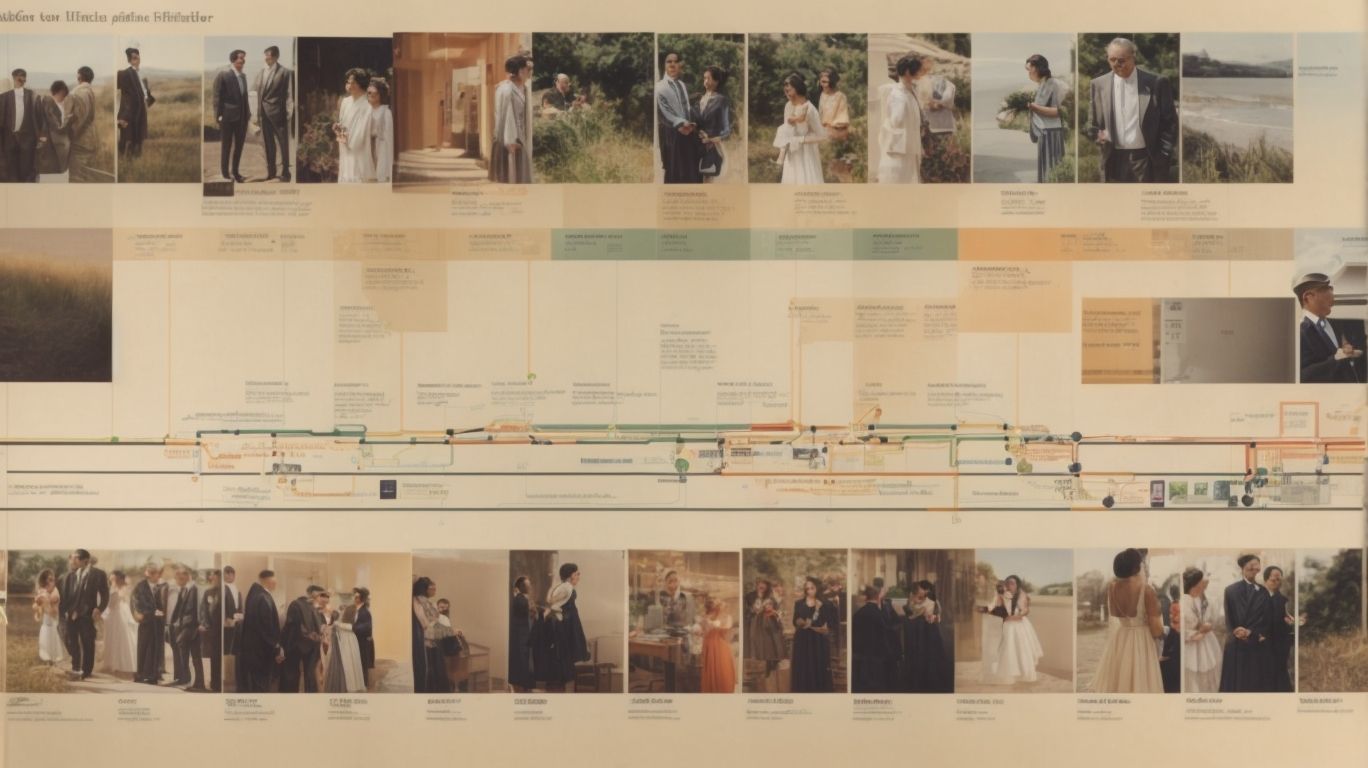Applied psychology is a fascinating field that has evolved significantly over time, shaping the way we understand and approach human behavior. From its roots in early theories to the influence of major world events, such as World War II, applied psychology has continuously adapted and grown.
In this article, we will explore the history of applied psychology, the different fields it encompasses, and how it has evolved over time. We will also discuss the future directions of applied psychology, offering insights into where the field may be headed in the years to come. Whether you are a student of psychology, a practicing professional, or simply curious about the field, this article will provide you with valuable insights into the fascinating world of applied psychology.
Contents
- 1 Key Takeaways:
- 2 What is the History of Applied Psychology?
- 3 What are the Different Fields of Applied Psychology?
- 4 How has Applied Psychology Evolved over Time?
- 5 What are the Future Directions of Applied Psychology?
- 6 Frequently Asked Questions
- 6.1 What is the definition of applied psychology?
- 6.2 How has applied psychology evolved over time?
- 6.3 What are some significant milestones in the history of applied psychology?
- 6.4 How has the focus of applied psychology shifted over time?
- 6.5 What are some current trends in the field of applied psychology?
- 6.6 How does applied psychology benefit society?
Key Takeaways:
What is the History of Applied Psychology?
The history of applied psychology traces back to the early 20th century, when the roots of Modern Applied Psychology began to take shape amidst a burgeoning interest in understanding human behavior and cognition.
During this period, advancements in fields such as psychoanalysis, behaviorism, and industrial psychology played a pivotal role in shaping the foundation of applied psychology.
Influential figures such as Hugo Munsterberg, known for his work in industrial psychology, and John B. Watson, a prominent behaviorist, contributed significantly to the early developments of modern applied psychology.
The application of psychological principles to practical settings, such as workplaces, education, and mental health, garnered increasing attention as the discipline evolved.
The Roots of Applied Psychology
The roots of applied psychology delve into the fundamental exploration of human behavior, learning principles, and the theoretical understanding of cognitive processes, laying the groundwork for the evolution of Modern Applied Psychology in the 21st century.
Early psychological theories, such as those proposed by Wilhelm Wundt, William James, and Sigmund Freud, paved the way for the development of applied psychology. Their emphasis on introspection, pragmatism, and psychoanalysis contributed to the formation of key concepts, methods, and approaches used in contemporary applied psychology.
These foundational theories provided a framework for subsequent scholars and researchers, including influential figures like B.F. Skinner, Albert Bandura, and Jean Piaget, who expanded the understanding of human behavior, cognition, and social interaction, shaping the diverse and interdisciplinary nature of applied psychology.
The Emergence of Modern Applied Psychology
The emergence of Modern Applied Psychology has been propelled by a dynamic blend of life-enriching skills, educational advancements, and the pioneering work of institutions such as Achology, setting the stage for innovative psychological practices and insights since 2016.
Modern Applied Psychology has witnessed an evolution intertwined with the shifting paradigms of education, enabling a profound understanding of human behavior and cognition in diverse contexts. Renowned figures such as Viktor Frankl, Abraham Maslow, and Albert Bandura have significantly shaped this discipline with their groundbreaking theories, notably contributing to its academic and practical dimensions.
The collaboration between Achology and other contemporary establishments has fostered an environment conducive to the application of psychological principles in real-world situations, reinforcing the value of this burgeoning field in society.
What are the Different Fields of Applied Psychology?
Applied psychology encompasses diverse fields such as cognitive behavioral psychology, NLP, and community psychology, each offering unique perspectives and interventions for personal growth and wellbeing.
Cognitive behavioral psychology focuses on examining the connection between thoughts, feelings, and behaviors. It is often used to address anxiety, depression, and phobias through practical strategies and exercises.
NLP explores language and communication patterns to understand how individuals perceive the world and achieve personal change effectively.
Community psychology emphasizes the importance of social systems and collective well-being. It works to address social issues and promote community enablement.
Clinical Psychology
Clinical psychology focuses on the assessment, diagnosis, and treatment of mental health disorders, drawing upon the insights and expertise of professionals like Dr. Benjamin Davis to promote emotional resilience and wellbeing.
Dr. Benjamin Davis’s pioneering work in cognitive-behavioral therapy has greatly influenced the field, offering effective strategies for managing conditions such as anxiety, depression, and PTSD.
This approach emphasizes the interconnectedness of thoughts, feelings, and behaviors, guiding individuals to reframe negative thought patterns and develop healthier coping mechanisms.
Clinical psychology integrates empirical research to understand the intricacies of human behavior, enabling the development of evidence-based interventions.
Notable figures like Aaron Beck, Albert Ellis, and Irvin Yalom have made significant contributions in this regard, revolutionizing therapeutic approaches and enhancing the quality of mental health care.
Counseling Psychology
Counseling psychology centers on fostering self-awareness, improving personal relationships, and addressing emotional challenges, with practitioners like Harrison Blackwood playing a pivotal role in guiding individuals towards self-improvement and relational well-being.
This realm of psychology delves into the intricacies of human behavior and emotional dynamics to provide individuals with the tools and insights necessary to navigate through the complexities of their inner world and external relationships.
Counseling psychologists often employ a combination of therapeutic approaches, including cognitive-behavioral therapy, interpersonal therapy, and psychodynamic counseling, tailored to the unique needs of each client.
Educational Psychology
Educational psychology revolves around understanding learning processes, optimizing academic environments, and advancing pedagogical methodologies, with institutions like the Academy Modern Applied Psychology, under the guidance of Evelyn Montgomery, spearheading educational advancements in 2024.
Educational psychology delves into learning theories to understand how knowledge is acquired and retained. It explores the complexities of cognitive development, behavior, and social interactions in academic settings. This field also considers the impact of technology, cultural diversity, and individualized learning needs in modern institutions.
Industrial and Organizational Psychology
Industrial and organizational psychology encompasses the study of workplace dynamics, leadership effectiveness, and organizational behavior, with professionals like Ethan Wilson driving insights and interventions to enhance workplace competencies and performance.
This field delves into the assessment of individual and group behavior, motivation, and job satisfaction within the context of organizations. It addresses areas such as employee selection, training, and development, as well as organizational culture and change management.
Notably, Ethan Wilson has contributed to the understanding of effective leadership styles, team dynamics, and employee engagement through empirical research and practical applications. His work has played a pivotal role in shaping best practices for optimizing organizational effectiveness and fostering a collaborative and thriving workplace environment.
Forensic Psychology
Forensic psychology delves into the intersection of psychology and the legal system, focusing on issues such as diversity, theoretical understanding, and offering insightful perspectives to aid in legal contexts and criminal justice procedures.
This field embraces an inclusive approach, drawing attention to the unique psychological factors related to individuals from various demographics, including race, gender, sexuality, and cultural backgrounds.
Through in-depth research and analyses, forensic psychology contributes to a better understanding of how these diverse elements intersect with legal matters, shaping the theoretical applications within legal contexts.
It plays a crucial role in informing legal processes, providing valuable insights into the behavioral patterns and mental states of individuals involved in legal cases.
These insights contribute to more knowledge-based decision making and fair treatment within the legal system.
Health Psychology
Health psychology focuses on the nexus of psychological factors and overall wellbeing, contributing insights to promote mental health and holistic wellness, with the expertise and perspectives from Achology serving as a cornerstone for advancements in this field.
Achology, led by notable figures such as Kain Ramsay, offers a valuable platform for understanding the intricate connection between the mind and body.
Topics such as stress management, coping strategies, and the interplay of emotions are explored in depth, ultimately improving overall quality of life.
Health psychology also examines the impact of environmental and social factors on an individual’s mental state, prompting further analysis into the development of effective intervention and support systems.
Sports Psychology
Sports psychology revolves around enhancing mental resilience, optimizing performance, and providing coaching interventions to athletes and sports professionals, with individuals like Amelia Robinson driving impactful strategies for athletic and personal growth.
This field delves into the psychological aspects of sports, training, and competition, aiming to understand and improve the mental processes that affect performance.
The focus on mental resilience encompasses strategies such as goal setting, imagery, and self-talk to bolster an individual’s ability to handle pressure and bounce back from setbacks. It emphasizes the significance of fostering a growth mindset, managing stress, and building confidence, all critical components in an athlete’s quest for success.
Neuropsychology
Neuropsychology delves into the intricate workings of the brain, exploring concepts such as neuroplasticity, consciousness, and hosting community events to promote understanding and awareness of cognitive processes and neurological phenomena.
Studies and research in this field shed light on the brain’s remarkable adaptability and resilience. They focus on how the brain’s structure and function interact with various cognitive and emotional processes, which leads to a deeper understanding of mental health and neurological disorders.
Through community engagements and educational initiatives, neuropsychologists strive to educate and enable individuals to recognize the importance of brain health and its impact on overall well-being.
How has Applied Psychology Evolved over Time?
The evolution of applied psychology has been a transformative journey, marked by changing perspectives, the emphasis on emotional resilience, the rise of evidence-based practices, and a growing recognition of diversity as a cornerstone for effective interventions and insights.
Initially, the history of applied psychology can be traced back to the late 19th century, where the emphasis was on the functional aspects of individual behavior and mental processes.
The works of pioneers such as William James and Hugo Münsterberg laid the foundational groundwork for the practical application of psychological principles in various domains, including education, industry, and the military.
As the discipline evolved, the emergent paradigm shifts led to a greater focus on the role of psychological factors in understanding and addressing societal issues, such as stress, trauma, and interpersonal relationships.
This shift also fostered the development of therapeutic interventions and counseling approaches, recognizing the crucial interplay between psychological well-being and overall quality of life.
The Influence of Early Theories and Researchers
The influence of early psychological theories and researchers has laid the groundwork for the theoretical understanding of cognition, learning systems, and the foundational principles that have shaped the contemporary landscape of applied psychology.
Notably, the pioneering works of Wilhelm Wundt, often regarded as the ‘father of experimental psychology,’ directed attention to the nature of consciousness and its role in shaping human behavior.
Concurrently, the groundbreaking contributions of Ivan Pavlov in classical conditioning and Edward Thorndike’s research on instrumental learning revolutionized our comprehension of learning processes.
These foundational insights have significantly influenced the development of diverse psychological interventions, facilitating advancements in clinical practice and educational settings.
The Impact of World War II on Applied Psychology
World War II had a profound impact on applied psychology, leading to insights on resilience, mental health, and the establishment of pivotal institutions such as Achology, with figures like Harrison Blackwood contributing to transformative practices in this era.
During World War II, the study of applied psychology saw a significant shift, as psychologists worked to understand and address the psychological effects of war on individuals and communities.
The experiences of resilience displayed by soldiers under extreme duress led to a deeper exploration of this trait, shaping the development of psychological interventions for trauma and post-war mental health challenges. Notable figures and institutions, like the renowned Achology and the influential psychologist Harrison Blackwood, played a central role in advancing knowledge and practical applications in the field.
The Rise of Evidence-Based Practices
The ascent of evidence-based practices within applied psychology has fostered a shift towards empirically supported interventions, offering valuable insights and reinforcing the theoretical understanding that underpins effective psychological approaches.
This paradigm shift has redefined the landscape of applied psychology by emphasizing the integration of empirical insights and research findings into clinical and therapeutic interventions.
It has led to a more rigorous and systematic approach to evaluating the efficacy of various psychological treatments, thereby enhancing the quality and effectiveness of interventions. The emphasis on evidence-based practices has also underscored the importance of critically appraising and integrating research findings into the theoretical foundations of applied psychology, promoting a dynamic exchange between empirical evidence and theoretical frameworks.
The Integration of Technology in Applied Psychology
The integration of technology in applied psychology has facilitated new frontiers of exploration into cognitive processes, consciousness, and the hosting of community events to foster awareness and practical applications of psychological principles.
Advancements in technology have revolutionized the field of applied psychology, allowing researchers to delve deeper into the intricacies of cognitive studies. The utilization of innovative tools, such as NLP (Neuro-Linguistic Programming), has enhanced the understanding of how language and behavior intertwine, providing valuable insights into human communication and interaction.
Technology has played a pivotal role in facilitating community engagements, enabling psychologists to reach a broader audience and promote mental health awareness through online platforms, virtual support groups, and digital campaigns. This has led to the development of new strategies for effective communication and intervention, shaping the landscape of applied psychology in the modern era.
What are the Future Directions of Applied Psychology?
The future directions of applied psychology are poised to embrace new horizons in fostering self-improvement, wisdom, knowledge, and the pursuit of self-knowledge, reflecting a paradigm shift towards holistic personal growth and cognitive enablement.
These trajectories signify a notable evolution in the practical applications of psychological principles, as individuals and organizations increasingly recognize the profound impact of psychological insights on personal and professional development.
The advancements in self-improvement strategies are expected to gravitate towards multidimensional approaches, encompassing not only traditional therapeutic interventions but also integrative methods that harmonize physical, emotional, and spiritual well-being.
The pursuit of wisdom and self-knowledge within the realm of applied psychology is forecasted to intertwine with contemporary scientific discoveries, shedding light on the intricate connections between cognition, emotion, and behavior.
As the field delves deeper into the complexities of human nature, the integration of diverse perspectives from neuroscience, philosophy, and spirituality is likely to enrich therapeutic modalities and enhance the understanding of individual growth trajectories.
Frequently Asked Questions
What is the definition of applied psychology?
Applied psychology is the branch of psychology that applies psychological theories and principles to real-world problems and situations. It focuses on finding practical solutions and interventions to improve people’s lives and well-being.
How has applied psychology evolved over time?
The evolution of modern applied psychology can be traced back to the late 19th century, when it emerged as a distinct field of study. Since then, it has continued to grow and adapt to the changing needs and demands of society, incorporating new theories and techniques from various other disciplines.
What are some significant milestones in the history of applied psychology?
Some important milestones in the evolution of modern applied psychology include the establishment of the first psychological clinic by Lightner Witmer in 1896, the founding of the first professional organizations such as the American Psychological Association in 1892, and the introduction of evidence-based practices in the 1970s.
How has the focus of applied psychology shifted over time?
Initially, applied psychology focused mainly on clinical and counseling applications, but over time, it has expanded to include other areas such as organizational, educational, forensic, and sports psychology. This shift has allowed for a more comprehensive approach to understanding and improving human behavior and well-being.
What are some current trends in the field of applied psychology?
Some current trends in modern applied psychology include the integration of technology in research and interventions, the incorporation of cultural and diversity perspectives, and the emphasis on prevention and early intervention rather than just treatment.
How does applied psychology benefit society?
Applied psychology has a wide range of practical applications that benefit society, such as improving mental health and well-being, promoting effective communication and teamwork in organizations, enhancing learning and academic success, and providing evidence-based interventions for various social issues.



